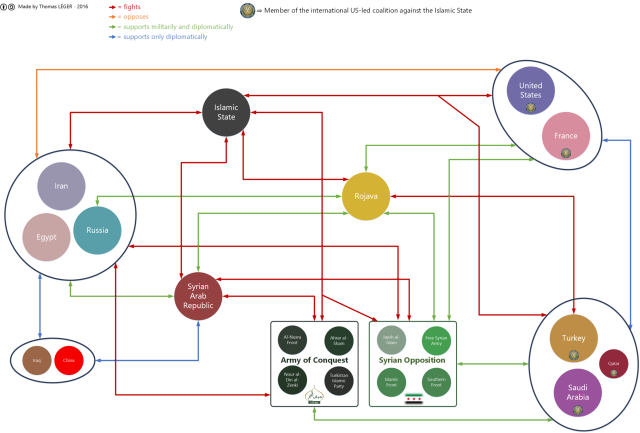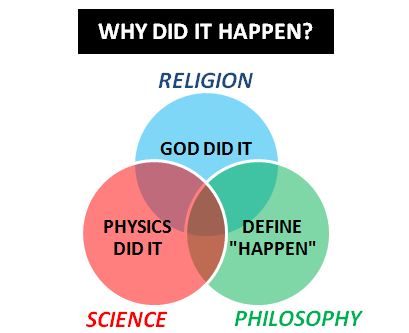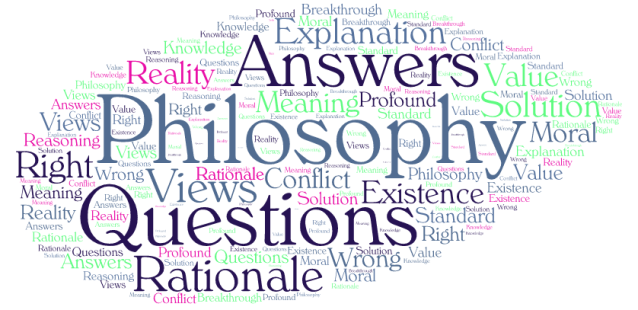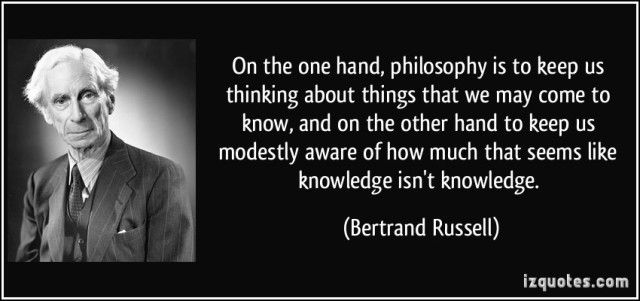[Author’s Note: I wrote this in 2001, the Space Odyssey year. Since then it has been updated once, to record the fact that the New Horizon mission had been launched. Turns out that I was uninformed and hopelessly pessimistic, influenced as I was by such doomsayers as Paul. R. Ehrlich and James Hansen. There is no human threat to the future of this planet.]
Colonising Space
Colonising space – Humankind has dreamt about this for centuries. Now we are at the dawn of an age where this may become a reality. But why would we want to? If it is a question of Planet Earth becoming overutilised, couldn’t we rather apply our resources to solving our problems right here? Is deep space travel technically possible? What are the benefits to us? And the dangers if we don’t?
Why should we want to colonise space? Earth is, by and large, an attractive planet. Even if we found another planet which would support human life, would life there be as pleasant? Granted, it might be even more pleasant— richer in resources, more fertile, easier on the eye. And unspoilt.
Long before the population crisis became an issue, and space became a territory which might be annexed for lebensraum, mankind dreamt of exploring the planets. Colonising space will entail enormous technical problems, and demand a financial outlay that dwarfs any project we have seen so far on earth. Even so we will always want to do it. Because, as Edmund Hillary said, it is there; because, as Jack Kennedy said, it is hard. It is in the nature of the beast called Man.
Humanity is fast outgrowing this planet. We are rapidly using up the non-renewable resources of the biosphere. The human headcount is increasing exponentially, and our materialistic lifestyle demands more and more consumption. Efforts to put on the brakes have so far been only partially successful, and the idea of managing Gaia as a renewable resource remains a distant vision. Everybody has experienced that immature dream of being able to run away from your problems and start again. Finding another planet to trash will give Humanity another chance, once this one has been used up.
In the long run Earth is going to die anyway, in about five billion years, when the Sun burns out. Roughly two billion years from now, our Milky Way Galaxy will pass through the much larger galaxy Andromeda; the resulting gravitational tides could disturb our planet in its orbit— maybe throwing it into the Sun, or drawing it away to an icy death in interstellar space. A comet or asteroid could hit Earth and cause a mass extinction, as has happened before— several times. Some nearby giant star may become a supernova, explode, and blow us all to pieces. Perhaps AIDS will prove to be incurable and mutate into a more contagious form, like the common cold; some other dread disease may surface. Our political systems may evolve too slowly to cope with nuclear capability and we may all die in a global war. Some of these eventualities are maybes, some far in the future, but there is one proximate certainty: if we carry on living the way we are, we are going to exhaust this planet. Soon.
The human population of Earth was estimated to have hit the 6-billion mark on October 12, 1999. Some optimists say that this is no cause for alarm. With strict pollution control, they say, and optimal use of arable land, the planet should be able to support 19 billion humans. The bad news is that, if the present gap between global birth and death rates is maintained, we will reach this number by the year 2080.
In Foundations for Freedom, Allan Sztab cites Easter Island as the prime example of uncontrolled population growth. The earliest colonists of Easter Island were fishermen. Within a few centuries they had cut down every tree on the island. Without trees they couldn’t build canoes; without canoes, they couldn’t fish. Soil resources were depleted, and erosion did the rest. The population ‘crashed’ to a fifth of former levels; the island could no longer support more than a few thousand people. Earth is headed for a population crash (a polite euphemism for mass starvation accompanied by brutal civil war), and we’d better have somewhere else to go.
The technical problems of colonising space appear insuperable. To start with, the distances are huge. At present speeds it will take millenia to reach even the nearest stars. The New Horizon mission, a NASA probe launched in January 2006 to take a look at Pluto, will follow a ‘Jupiter Gravity Assist’ trajectory. That is, it will fly past Jupiter to take advantage of the pull of its gravity. Like a race car coming down off a banked turn, the Pluto Express will get a slingshot ride to the outer planets. Even so, at speeds of over 70.000 km/h, the probe will be nine years and five months in getting to Pluto. And that’s a mere 6 billion kilometres, a distance which light covers in five and a half hours. Distances to every known object outside our solar system are measured in light years. At its best speed, the Pluto Express would take about fifteen thousand years to travel a single light year.
Then there is the expense. The successor to the Hubble Space Telescope, namely the Next Generation Space Telescope, has been delayed due to cost (a trifling 2 to 3 billion US dollars). The International Space Station (over 50 billion dollars) is behind schedule. Where will the money for deep space exploration come from? It is not simply a question of money, because the outlays are not immense in relation to the economies of the US, EEC, Japan, and Russia. As Wilkie and Roselli say in Visions of Heaven, there is no limit to human curiosity, but there is a limit to our will to satisfy it. There has to be some sort of short-term benefit to make space exploration attractive. An American company proposes to mine the asteroids for valuable minerals. This is the kind of obvious thing that gets drums beating and feet marching (and chequebooks waving). If it is workable, it may give the space programme the kick it needs.
But, before the first colonists set out for the stars, they need some sort of assurance that there will be a habitable planet when they get there, or they could wander around in space forever and never find anything. So we need better telescopes and better cosmology.
There are about 20.000 billion billion stars in the known universe. Some of them must surely have planets similar to Earth. Some of these planets may already have life on them, though not necessarily intelligent life. From our own experience, it takes over half a billion years for life to evolve from the pre-Cambrian amoeba to where we are today. Having reached this point, life could be snuffed out by one of the catastrophes listed earlier, whether self-generated or coming from the cosmos. In other words, intelligent life on another planet may still be developing, or it could have come and gone.
Our own Milky Way Galaxy is about 100.000 light years across and contains about 100 billion stars. Surely within this very galaxy there are suitable planets for us to colonise?
If we choose not to believe that the formation of Earth was a cosmic accident, we will start by looking for yellow stars like our sun, on the assumption that what has happened here must happen elsewhere too. But, only 5 per cent of all stars in our galaxy qualify on this count. And only 5 per cent of these sun-like stars are singles. The rest are binaries, or twin stars which orbit around each other. All the planets in our solar system have elliptical (oval) orbits. In the case of Earth, this oval is so close to circular that it makes hardly any difference. Year round, we are about the same distance from the sun, within three million kilometres. What if Earth’s orbit were more eccentric than it is? Part of the year we would roast; most of the year we would freeze. The planets of binary stars have irregular orbits. Life might not be impossible there, but any life forms would have to be very hardy and adaptable, in order to withstand the extremes of temperature. Although, as I will explain later, this is not necessarily a bad thing, if we are searching for planets to colonise, then we should concentrate our efforts on single stars.
The mathematically-minded will already have calculated that the number of stars in our galaxy which are (a) like our Sun and (b) not binaries, is 100 billion times 5 per cent times 5 per cent— only 250 million. Hmmm.
Imagine a sphere with a radius of 25 light years, with our Sun at the centre. Based on the average density of stars in our galaxy, this should contain about 6 candidate stars, with Sol being one. The bad news is, the corner of the galaxy which we inhabit is pretty empty. The good news is, the JPL-NASA TPF (Terrestrial Planet Finder) project has nonetheless identified 3 other stars within a radius of 25 light years from Earth which qualify, i.e. they are like our sun and they are not binaries. Right now, the TPF project is busy examining the atmospheres of the planets of these stars. What we want to see is an atmosphere with oxygen, water, carbon dioxide, and methane. These, in the right quantities, mean there is something organic happening on that planet: Life.
If we find earth-like planets nearby, could they be already inhabited? If they are, the inhabitants aren’t as advanced as we are. SETI, the now-abandoned Search for Extra-Terrestrial Intelligence, listened for radio transmissions coming from the stars near Earth, up to about 80 light years away. Apart from the normal static, they heard nothing.
Actually, life must already exist on the planet we are looking for. Exist, specifically, at the bacterial level, as we require bacteria to create soil and liberate oxygen. It would be nice if there were plant life and perhaps some unintelligent animal life forms to provide juicy protein, so that when we got there we could have burgers and fries. I don’t know if we’d be welcome on a planet inhabited by beings of our own or more advanced intelligence, and it might be unethical to colonise a planet with less-intelligent life forms. I say ‘might,’ because a species’ intelligence grows to the point where it no longer provides a survival advantage. A more evolved civilisation than ours probably inhabits a more hostile environment. Such as, for example, the climate of a planet in a more elliptical orbit than Earth’s. As soon as a species can control its environment, natural selection stops, and the species even regresses.
It’s possible that the rigours of the last Ice Age were what gave hominids the final boost up the ladder to humanity. Because life was so tough, only the smartest could survive. When life is easy, and food is abundantly available without effort, you don’t need to be any smarter than a chimpanzee. If we landed on a very cushy planet whose highest life forms were at the chimp level, then we might suppose that they had reached the limit of their development. But if the planet supported life, and its environment was at least as hostile as ours, then we might suppose that in time, life there would evolve to a level equal to ours or greater. And it would be unethical to interfere. Colonisation has a bad name, and deservedly so. Contact between Western culture and less technologically advanced societies proved disastrous for the third world. Knowingly to repeat this would be tragic— even criminal. It would require a set of rigorous investigations to determine if a planet could ethically be colonised. Ethics, then, become the greatest barrier to the colonisation of space.
There is one sine qua non for colonisation, as opposed to exploration. And that is rapid, affordable space travel. Presumably one could find a band of adventurers who would be prepared to say goodbye to terrestrial life, knowing that they would certainly die before their spacecraft was even halfway to any sort of destination. Right, so the explorers, or their descendants, find a suitable planet, and somehow send word back to start shipping people out. To make any kind of dent in Earth’s population, we are going to have to transport people by the million— day in and day out. In present-day terms, the cost of just one such mass space-transport would bankrupt the entire world economy. Sustaining a couple of million people on a spacecraft, for a century or more, seems presently impossible, because the life-support problems are so great. Critical components on board the spacecraft are going to fail, and quite possibly their backup systems too, far away from a workshop. Also, what we know about human behaviour suggests that the political and social problems on board the spacecraft would tear it apart, perhaps literally.
And while all this is going on, the passengers will be doing what comes naturally. Put a million people on a spaceship today; how many get off in a hundred years’ time? Four or five million, that’s how many, not counting the two million-odd who got off along the way, in body bags. Come to think of it, how on earth (pardon me) are you going to get people to climb on board the Colony Express? They would have to be pretty desperate. Life on board a crowded, cramped spaceship, with limited career and lifestyle options, will hardly be something to look forward to. In the movies, the scriptwriters solve this problem by putting the voyagers into a Rip van Winkle state of suspended animation. The trick in getting this right is to persuade all the different microbes which inhabit your body (some of which flourish at sub-zero temperatures) to play along too. Otherwise, when you opened the hibernation capsules, all you’d get is a lot of spoiled meat.
Space missions of extended duration are a no-no. We have to achieve a substantial increase in the speed of space travel, from the present 70.000 km per hour to at least 60.000 km per second, one fifth the speed of light. Even at this rate Proxima Centauri, the closest star to our own Sun, would be 23 years distant. It would take half a million years to cross the galaxy, and nearly a million to reach the closest other galaxy to ours, the Large Magellanic Cloud.
Is an increase in speed by a factor of over 3.000, from 70.000 km per hour to 60.000 km per second, at all possible? To start with, the theory of relativity imposes some constraints. The equation e=mc2 applies to a body at rest; thereafter energy (and thus mass) increases as the square of the speed. Near the speed of light, mass has become so high that the energy required for further acceleration approaches the infinite. Dimensions shrink: male astronauts beware! But up to 20 per cent of the speed of light, the energy curve remains almost flat. I think that, if we have managed to increase the speed of computer processors by a similar factor in the last 25 years, to increase the speed of space travel 3.000 times does not seem impossible.
Put it another way: say that you accelerated a spacecraft at the rate of 10 metres per second every second, which happens to be close to 1g, the force of gravity at the surface of the Earth. After one second, you would be travelling at 10 metres per second, after two seconds, at 20 metres per second… and after 6 million seconds, you would be moving at a rate of 60 million metres per second. That’s 60.000 km per second, which is right where we want to be. Six million seconds sounds like a lot, but it’s only 70 days. I chose an acceleration of 1g, the same as gravity, because it’s a force that the human body, and the bodies of our evolutionary predecessors, has been coping with quite happily for the last few hundreds of million years. Spacepersons could walk about perfectly normally on their starship, with an artificial gravity the same as that on Earth. They wouldn’t even be aware they were accelerating. Suddenly, getting up to one-fifth the speed of light doesn’t seem like such a big deal.
Heck, yes, there are practical objections. For one, just think of all the fuel you’d have to carry on the spaceship. When you get to your destination, you’ll need to slow down by firing the engines in reverse. You’d have living quarters the size of a small house, and fuel tanks the size of the Moon. But there must be more efficient propulsion engines than the chemical rockets which we are using at the moment. Future-scientists are talking about ultra-efficient energy derived from the reaction between matter and antimatter. One ton of this exotic fuel would power a 1000-ton spacecraft all the way up to 60.000 km per second; another ton would slow it again. All we have to do is manufacture two measly tons of antimatter, then design and build an antimatter drive, right? Right… The problem is that the required know-how may be beyond our intellectual grasp. We can’t even get nuclear fusion right, and that’s far simpler than antimatter. Our intelligence is finite: building antimatter drives may be asking too much of us. We still have some way to go before reaching our technological limits, but in some areas of science, especially physics, we may be near the end.
Of course we are thinking in terms of straight lines, and there may be some way to change location within the universe without physically having to traverse the distances. There is a great deal of speculation about wormholes, short-cut tunnels which link distant areas of space. Passage through a wormhole would be a fearsome experience, but it just might be possible— if wormholes actually exist. The Star Trekkers use the fantastic energy of ‘dilithium crystals’ to warp the fabric of space-time. Their city-sized starships don’t travel any faster, they simply shrink distance. Like the Brainy Big Bad Wolf who couldn’t blow the Little Pigs’ house down, so he blew it up, the fictional warp drive is a fine example of lateral thinking. Using ‘Jupiter Gravity Assist’ trajectories to speed up space-probe transit to the outer planets seems obvious in hindsight. Likewise, the answer to rapid interstellar travel may be right before our eyes, waiting for us to trip over it.
Assuming that it was decided to colonise another planet on a small scale, maybe with a party of as few as twenty, purely to preserve the human gene in case of extinction, then biogenetics would have to be advanced, otherwise the small gene pool would result in birth defects. If there were no ready alternative even a barren planet might do, on the theory that if we can maintain life on board a spacecraft in the cold and vacuum of space, then life inside a biodome should be easy. The colonists would create life forms by culturing DNA and spores brought from Earth. They would manufacture soil and build generators to produce an atmosphere with free oxygen. But the colony could be wiped out by an asteroid strike just when it was getting established, or perish from exposure to some alien virus. If our purpose is to preserve humanity, then we can’t put all our eggs (and sperm) in one basket. The seeding process will have to set up bases on a number of planets. This multiplies the cost and the difficulty.
Because of the obstacles, I don’t imagine that colonisation will become a practical venture, and on a large enough scale, in time to save our planet. But there is an upside to all this. Over and over again, it has been found that the human situation advances as much when engaged in a difficult and futile venture, as in a productive one. A study of American Gross Domestic Product (GDP) in the last century is a good example.
In 1945, the final year of World War II, the US economy was booming. This appears illogical, because everything that came out of the factories was meant to be destroyed; if it wasn’t, its only value was as scrap. However, WW2 was a comparatively high-tech war, and what we have since discovered about high-tech manufacturing is its very high ‘multiplier effect.’ Numerous secondary industries are needed to manufacture the components for the finished product. Because high-tech components typically go through several stages of manufacture, to build an item costing one thousand dollars will increase the nation’s GDP by several times that amount. High-tech manufacture requires skilled labour earning good wages; wages are spent not only on bread and butter but also on home theatre systems, personal computers, cars with fuel-injected engines; and the money goes round and round. Building bomber planes and radar sets was good for American business in the 1940’s, but what really got the economy going was the project to build the atomic bomb, which was a venture more massive than anything seen on this planet before, including the building of the pyramids and the Panama Canal! And what could be more futile than the atomic bomb?
After WW2 the US economy slowed, and then along came the Korean ‘War.’ At the same time the race to put a man in space was just beginning, so when Korea quietened down there was still a huge and very-high-multiplier industry to keep the economy on the boil. Then JFK sent military advisers to Vietnam, and for ten years there was another high-tech show in town, spinning money, generating GDP and taxes and putting wide smiles on businessmen’s faces, although there was a slight drawback in that people were getting killed.
After the space programme and America’s involvement in foreign wars were reduced, the US economy faltered. It took Bill Clinton’s faith in human capital to get it back on track. Although America under Clinton grew for a record eight straight years, this came more from information and service industries than from manufacturing. Sure there have been lasting spin-offs from aerospace, such as the electronic revolution which gave us the personal computer, cellphone, and the Internet. The problem for the US economy is that technological industries are exportable. The main beneficiaries are those countries that provide cheap labour to the entrepreneur. Once an industry has matured and stabilised and the cutting edge is not quite so razor-sharp, methods of manufacture are simplified in the interests of efficiency and cost-reduction, and the multiplier effect drops.
Of course, now that the American electronic monopoly has ended, everyone else is smiling. Well, not everyone else. Afghanistan is a mess, in spite of exporting billions of dollars’ worth of opium annually. And most of Africa too, despite the continent’s colossal mineral wealth. Perhaps the best argument for my thesis is to look at the economies which are constant aid beneficiaries, and draw a correlation with the technological levels of their industries. Quickly you will see that the UN, World Bank and the IMF shouldn’t be giving money to needy countries. The benefits are very short-lived. Give a man a fish, goes the saying, and you feed him for only one day. You should be helping the poor to catch their own fish— you should insist that aid be by way of establishing high-tech industries. This is not a popular policy, because the industries of the donor countries that pay the taxes that provide the aid aren’t that keen to set up competitors, and erode their markets. There is also the problem of staffing these industries, because until the developing countries have developed, many of your good people are going to move to the fleshpots of the first-world countries as soon as they are trained.
Nonetheless, it would appear that the way to boost a third-world economy would be to launch some very-high-tech industrial project— such as building a space rocket. Even if the darn thing never got off the ground, the multiplier effect would run GDP up and provide a pool of skilled people who would continually be drifting off into other industries, broadening the industrial base. More GDP means more tax revenue, making it possible for the state to fund its own social and infrastructure projects without having to depend on hand-outs. And as a country becomes richer— provided the poor don’t keep on getting poorer— the population growth rate drops.
Thus it is the economic and technological spin-offs that make space exploration pay. Numerous studies have shown that every dollar NASA spends in space brings a ten-fold return. We’re talking about returns in hard cash, not in terms of immeasurables such as non-stick frying-pans and computers that can write poetry. Only 1 per cent of the USA’s national budget goes to NASA. America spends five times as much on welfare, and it doesn’t seem to have achieved much: there is more poverty now than before the Welfare Bill was passed. Even so, NASA has to fight for every penny it gets from government. The political facts of life are that people want to see the government putting money directly in the hands of the poor, not indirectly through programmes which strengthen the whole economy (and indeed the whole world), benefiting the rich as well as the poor. Franklyn D. Roosevelt broke the back of the Great Depression through job creation, not by dishing out cash to the needy. Right now it’s space exploration that’s keeping America on top of the pile, when industrial rivals Japan and Germany have fallen on hard times. NASA’s 1 per cent of the budget is money very well spent.
Have you ever watched one of those hour-long infomercials that show cars running without any oil in the engine? NASA developed these miracle lubricants for use in space, where conventional oils would either burn away or freeze solid. Do you own a digital camera? Guess where it came from. Yeah, NASA. The boots worn by Neil Armstrong and the other Apollo astronauts on the moon had shock-absorbing gel pockets in the soles— just like the ones in the athletic shoes you and a billion other people wear today. Smoke detectors, bar coding, quartz watches, virtual reality games and movie 3-D special effects, cordless power tools, metal-coated plastic foil for food packaging and solar-reflective window film, the “glass cockpit” in every commercial aircraft— it’s hard to get away from technology that NASA developed and has now made available to the public. If it’s your bad luck to be hospitalised, you may have cause to thank NASA for the CAT and MRI scans that help the physicians save your life. I’m not going to mention anything as obvious as micro-computers, cellphones, and the satellites that monitor the weather and carry TV signals across oceans and continents, nor will I bore you with details of the diamond-bladed machine that cuts safety grooves in concrete, to keep cars from aquaplaning on wet roads and animals from falling in milking sheds and stables. Most of the time you won’t even be aware that your life has been touched by something first developed for the space programme, because the technology is so seamlessly integrated into modern life.
And who can imagine what discoveries await us in the future, if we continue with this most challenging of quests? Take your wildest scenario of what life will be like one hundred years from now, and expand it a hundred-fold. Even then you will be hopelessly pessimistic. All we can say of tomorrow’s world is that technology will be smarter, friendlier, and almost ubiquitous. Couch potatoes won’t even have to get up to go to the refrigerator. The fridge will come to you. The one thing that won’t change is human nature.
Colonising space— a dream? I don’t believe it will happen in the near future or on a large scale, unless scientists discover a cheap method of moving large numbers of people to other points in our universe, with a trip duration well within a human lifetime. Is it a worthy goal? Certainly: in fact, it is probably necessary. So far, homo sapiens has never failed to overcome a challenge. To admit defeat, to accept that this is as far as we can go, would doom us to a limited future, like the caged lion endlessly pacing its confined rounds.








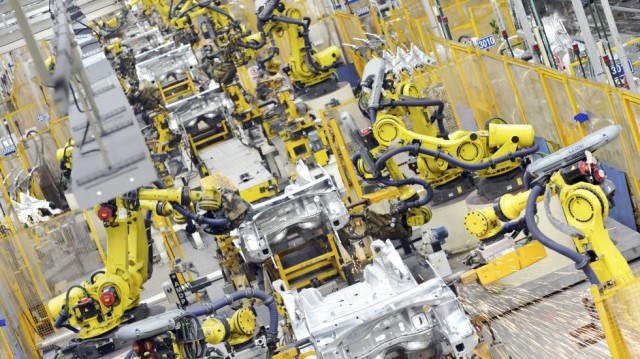

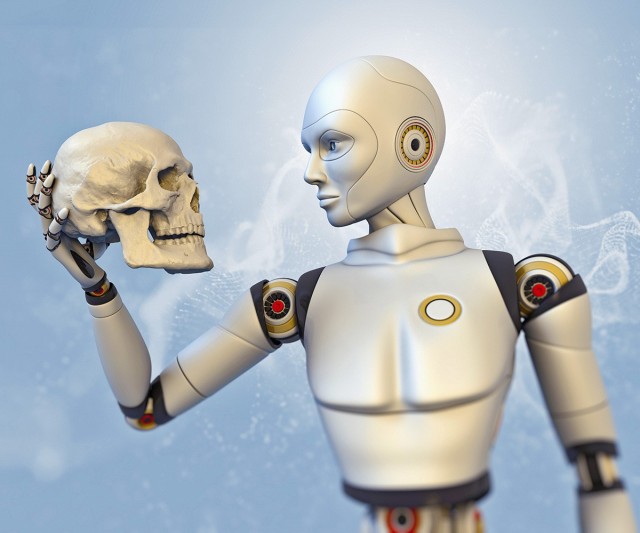

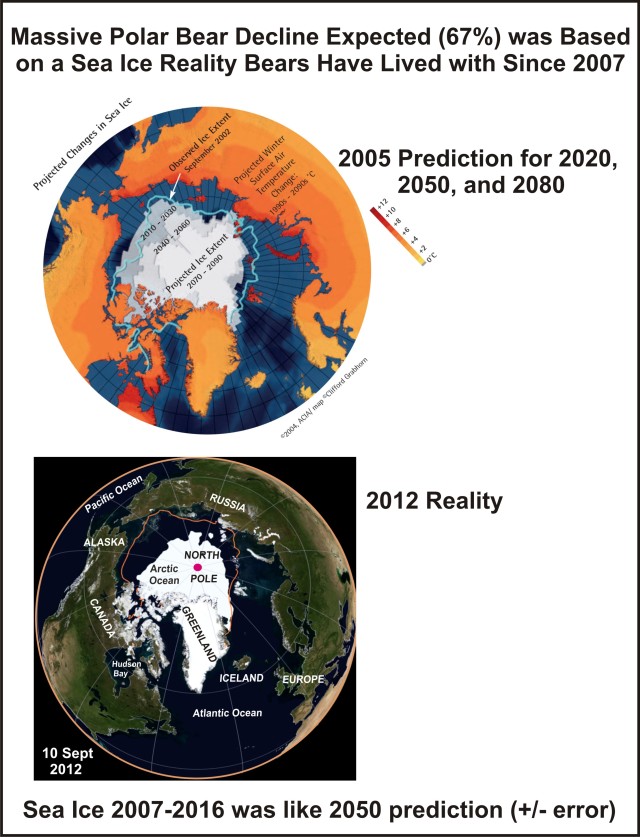 Predicted sea ice changes (based on 2004 data) at 2020, 2050, and 2080 that were used in 2007 to predict a 67% decline in global polar bear numbers vs. an example of the sea ice extent reality experienced since 2007 (shown is 2012). See Crockford 2017 for details.
Predicted sea ice changes (based on 2004 data) at 2020, 2050, and 2080 that were used in 2007 to predict a 67% decline in global polar bear numbers vs. an example of the sea ice extent reality experienced since 2007 (shown is 2012). See Crockford 2017 for details. 